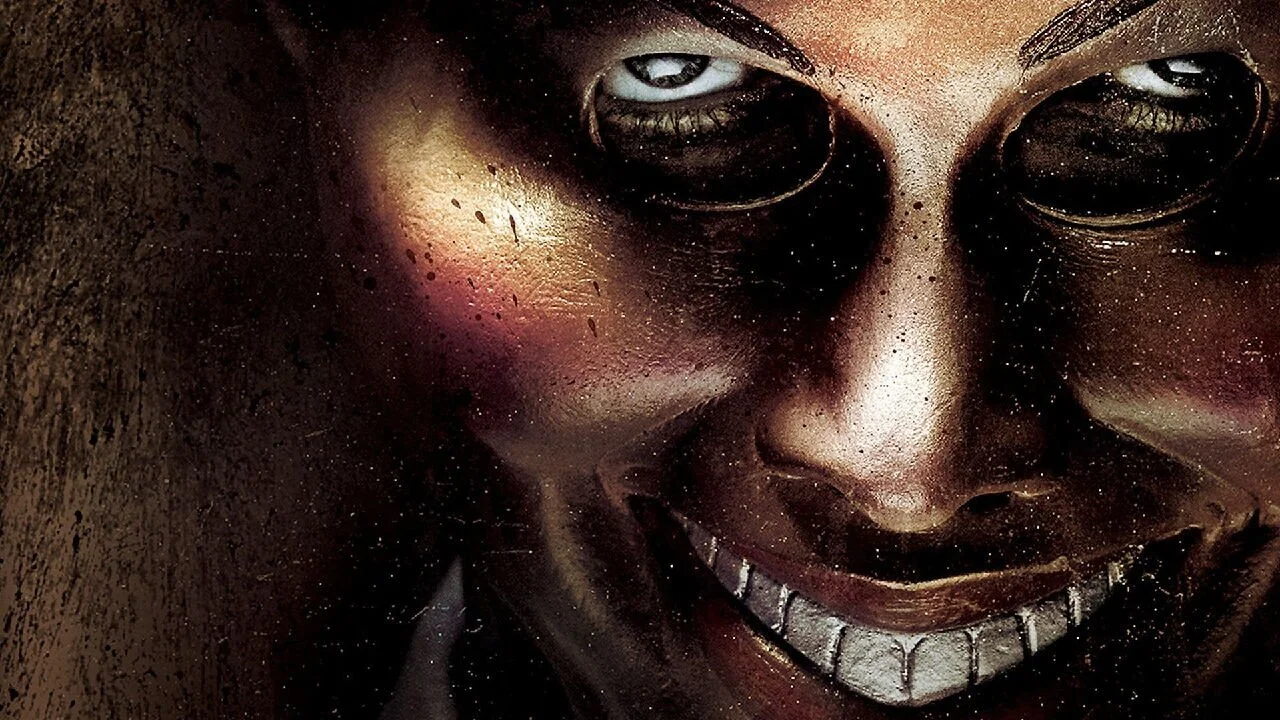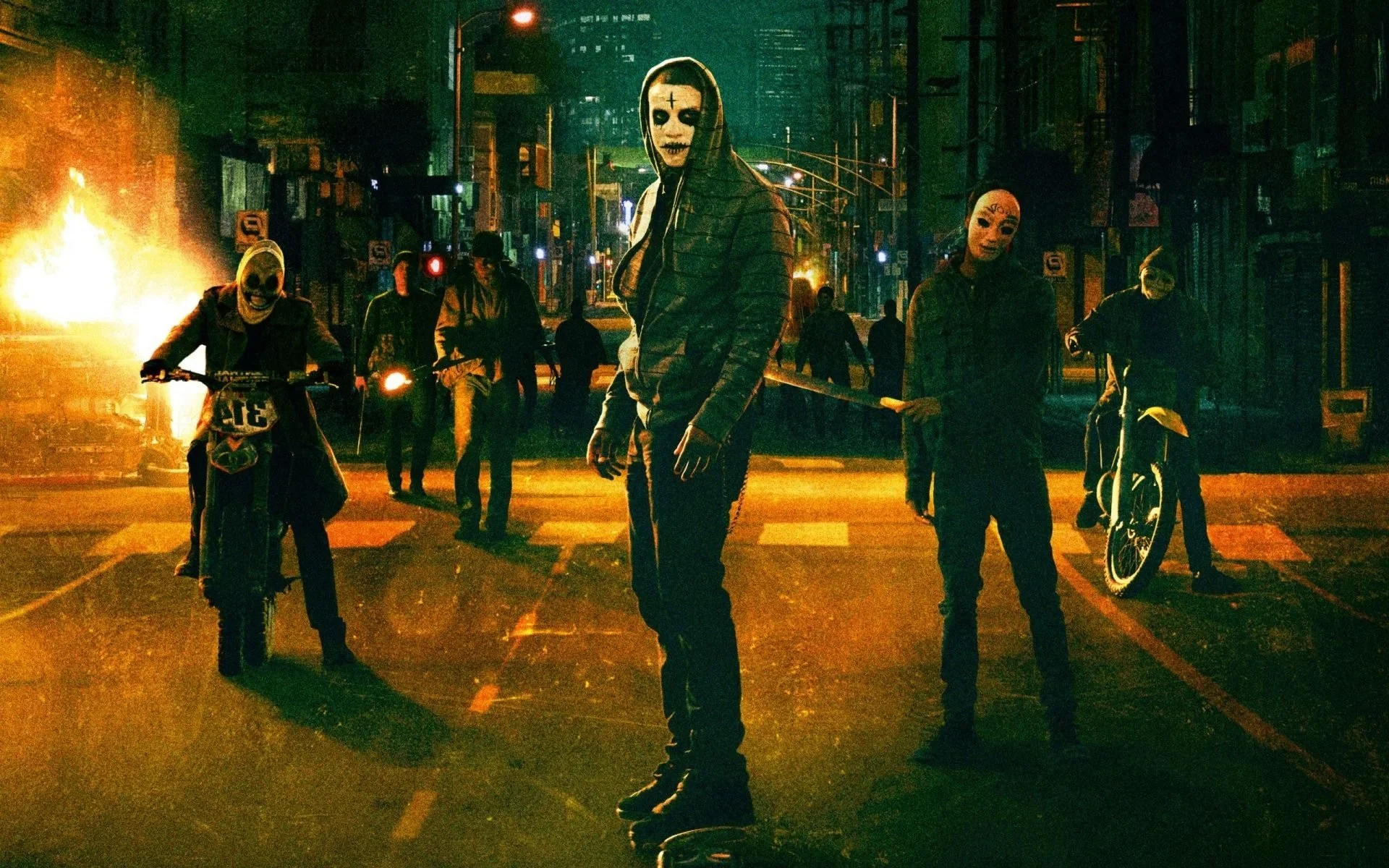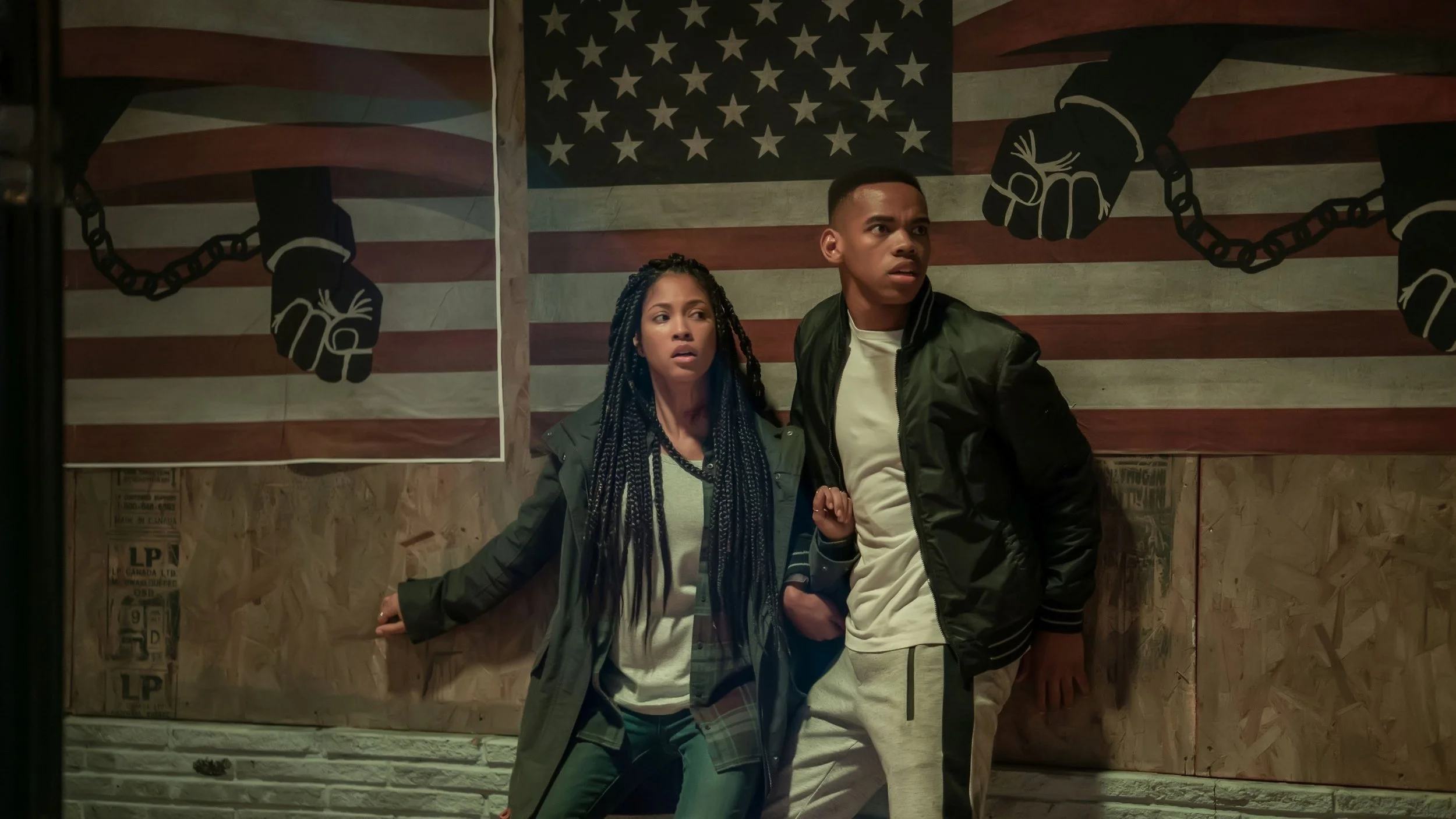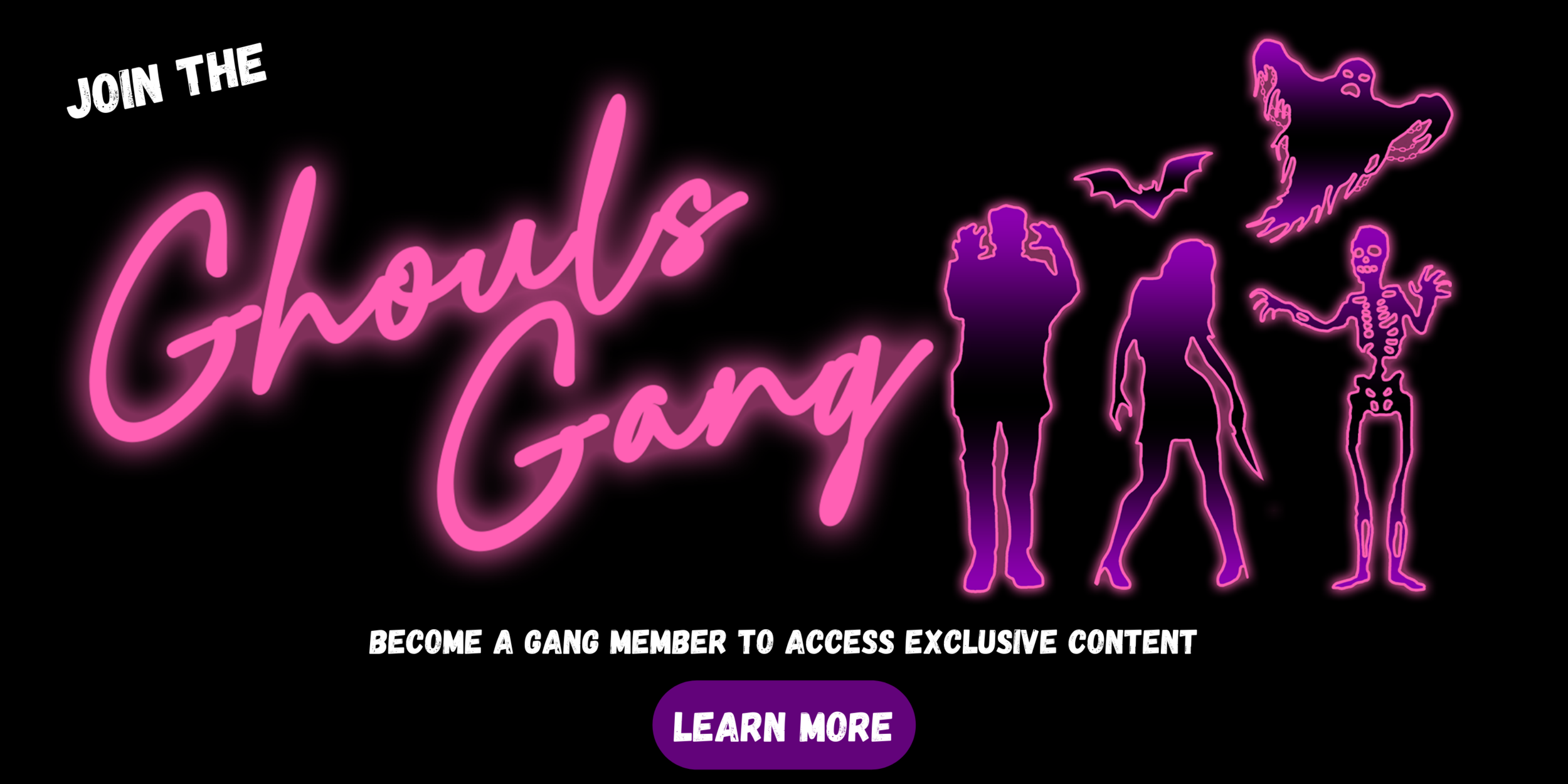[For The Love Of Franchises] How The Purge Franchise is Both Terrifyingly Relevant and Disappointingly Hollow
Recently I embarked on a full rewatch of the films of the Purge franchise ( I have yet to explore the television series) for a retrospective deep dive on my podcast Fishnets & Philosophy , and following the years of a Trump presidency, Brexit, and the general rise of nationalism and far-right politics across the globe which was directly followed by the Covid pandemic, these films hold a deeper resonance now than they previously did. However, when I first watched these films, I was living under the false pretence that I was a Cisgender man, now that I have embraced my true self as a Genderqueer/Non-Binary person, this film franchise feels frustratingly hollow.
The Purge film franchise deals with themes of classism, racism, poverty, and inequality. Each film approaches these themes from a slightly different angle, but they are the thematic bedrock for this franchise which was created by James DeMonaco. DeMonaco is the writer for all five films, and the director of the first three. One of the criticisms that is often held against the Purge films is that the messaging is too “on-the-nose” and not subtextual enough. To some, this is considered to be lazy or ineffective writing by DeMonaco. I would disagree with this criticism towards the Purge films and DeMonaco. Don’t get me wrong, I love my horror that has subtle subtextual messaging, but sometimes I strongly believe that clever subtextual messaging needs to be pushed to the side for messaging which sits loudly on the surface of the text and uses a large sledgehammer to force the viewer to confront and reconcile with an uncomfortable truth. There is a part of me which feels that because the films in the Purge franchise are dealing with a heightened version of society as it exists today, the tough to stomach messaging felt too real for many viewers.
These films came into the zeitgeist as there was a global rise in nationalism and fascism. All across Europe far-right parties felt more emboldened to espouse their hateful views. The UK’s answer to this worrying shift in global politics was to bring forth Brexit. Shortly after this the world was presented with a Trump presidency in America. I believe that James DeMonaco created the Purge films to try and criticise this damaging political shift to the right, but perhaps these films came too early for many people. When all people had to do was turn to social media and the news to see numerous far-right marches and politicians platforming white supremacy, films that were utilising the same alarming imagery may have felt like a bridge too far. This is of course something I can only speculate about, but there is a strong part of me that feels The Purge films are going to be one of those franchises which is revisited in a few years time and is appreciated for what it was doing. Whether always successful or not, the Purge franchise was doing what the best horror films have always done, commenting on the state of society as it exists when the films are made. The horror genre is the one best equipped to hold a mirror up to society, and I think the Purge franchise does this incredibly well. However, the mirror which DeMonaco is holding up, is one which has been cracked, where some detail of the society it is commenting on has been missed and thus omitted. The detail which is lacking from the Purge franchise and universe is that of Queerness.
The Purge film franchise as I mentioned previously, is driven by themes of classism and racism. These films portray a world where the white and wealthy elite thrive while the impoverished marginalised communities of colour struggle to survive. A society where there are different rules depending on where in the social ladder you fall, and the colour of your skin. Despite my admiration for the ambition of these films, it is often very clear that these are the creation of a cisgender white man. This is the perspective of an ally who has not had the lived experience that these stories revolve around. When you watch each film once, it is not that evident, but upon rewatch, even though the quality never reduces, there is a slight aftertaste that you can’t quite shake off. The small questioning voice in the back of your head which ponders how these films would look if there was a black or Hispanic person (the main ethnic groups these films focus on) behind the camera and involved in the writing process. Ultimately we can never definitively answer that question, but merely acknowledge its presence while we revisit these films.
There was another question which popped into my mind on my rewatch of this franchise, “where are the Queer people?”. Similarly, to that niggling question about the whiteness of these films (despite having predominantly casts of colour - particularly as the franchise expands with each film), these films feel very cisgender and heterosexual. This was not something I picked up on when I first watched these films, I falsely believed I was a cisgender man, and even though I was supportive of the Queer community in the abstract, as I did not have any Queer people in my social circles, their absence on screen was not apparent to me. Now that I have been living as my authentic self for close to three years, and I am surrounded by fabulous and beautiful Queer people, watching any film where Queer characters do not exist is noticeable, but with the Purge films it feels even more glaringly obvious that Queerness does not exist in these films. Not only are these films devoid of Queerness, they also feel very binary. There are strongly defined patriarchal/paternal characters and strongly defined matriarchal/maternal characters. Whenever these are characters that are in a relationship on screen, or there is an indication characters have partners, these relationships are only a man and a woman. The more I picked up on this as I moved from one film of the franchise to the other, I started to feel that the lack of Queerness in these films was not accidental but rather a deliberate choice by DeMonaco. Perhaps now that I have lived as an out Genderqueer/Non-Binary person for the guts of three years and have unfortunately grown rather accustomed to people who want nothing more than a world without Queer people, I have become rather cynical when it comes to media that reflects this fictional world which bigots long for. I no longer believe that filmmakers can accidentally leave Queer characters out of their stories, it is always a choice.
Sitting with this realisation on my rewatch of the Purge films, I started to feel anger towards DeMonaco. This anger was not purely because of the lack of Queerness in these films, but rather more because I was a strong advocate for so much that this franchise is doing, only for it to fall at the last hurdle. I let the anger go through its cycles in my body and continued to reflect on this franchise and the disappointing lack of Queerness in these films. DeMonaco so succinctly and accurately calls into question everything which is wrong with the structural systems in place in our white supremacist and capitalist world, I could not wrap my head around how he could so accurately turn the mirror on society and make such a glaring omission. That was when it hit me, in our current society, it is the Queer community that is subjected to the most violence in proportion to every other marginalised community. When one accounts for the intersections of different marginalised identities, the numbers get even more grim, it is Trans Woman of colour who face the largest numbers of violence and murder. This is how our society currently operates, if DeMonaco were to include this reality in the Purge films, then the largest number of deaths on screen would be Queer characters. This wouldn’t be Queer characters that just happen to get killed, this would be numerous Queer characters being murdered primarily because of their Queerness. The Purge films as they are work because they feel like an accurate depiction of how things would look if white supremacist rulers legalised all crime including murder for a period of 12 hours once a year.. If Queer characters existed in this franchise, the only way the films would work and have the same weight is when Queer characters are being killed, I do not believe these films would be as powerful and impactful as they are if they had Queer characters that were not the focal point of all violence on screen.
When I had this realisation, I really needed to sit with it. Would I want a film franchise where Queer characters are being brutalised because of their Queerness in every film? I like all Queer horror fans want more Queer characters on screen, and more Queer creatives in the filmmaking process. We want Queer heroes, we want Queer villains, we want Queer characters who just happen to be Queer but are fully fleshed out people, flaws and all. However, what a lot of us are tired of, is seeing Queer trauma. Seeing Queer characters who feel like walking Queer stereotypes that are being brutalised on screen because they are Queer. I am unable to envision a Purge film where Queer characters are not the focal point of the violence on screen. I can certainly envision a Queer character that is targeted for who they are, goes through all manners of awful violence but does eventually survive The Purge, but just because I can picture it, does not mean that I desire that. So maybe DeMonaco was not being driven by malice or ignorance in having these films devoid of Queerness, maybe instead it was a kindness towards a community which already faces so much pain from society on a daily basis. This could be me being overly gracious, but this is a film franchise which wants to criticise the modern classist structure of a white supremacist capitalist society and putting Queer characters in front of every bullet and penetrating weapon, would drastically alter the messaging.
Do these films still feel frustratingly hollow with the lack of Queerness and cookie cutter binary character roles? Yes, there is no denying that. However, despite my frustration at sitting through an entire franchise of films and not having any Queer characters on screen, there is a part of me which is grateful to DeMonaco for not putting Queer characters in harms’ way. I am choosing to embrace the feeling of gratitude rather than dwell on the feelings of frustration, and that is because in every other aspect, this is a film franchise with set out with an ambitious goal of criticising our modern-day society, of warning where things could possibly go, and I feel this franchise meets that goal. The horror of the Purge films is not the violence or gore, but the capacity for humans to be monstrous once they know there will be no repercussions. I do not know about other Queer horror film fans, but I for one am rather glad that Queer characters do not face that horror in these films, Queer people face enough of that horror in our daily lives as it is.


























![[Editorial] 9 Horror Nintendo Switch Games To Play](https://images.squarespace-cdn.com/content/v1/5fe76a518d20536a3fbd7246/1697214470057-3XZXX8N4LYIMDFWS6Z3P/Screenshot+2023-10-13+at+17.20.13.png)
![[Editorial] Soho Horror Film Festival: Interview with Aimee Kuge on Cannibal Mukbang](https://images.squarespace-cdn.com/content/v1/5fe76a518d20536a3fbd7246/1701808004722-9M8SZ2UXY52QBQBR4NTI/img20230818_15150780.JPG)
![[Editorial] What to Watch at This Year's Cine-Excess International Film Festival 2023](https://images.squarespace-cdn.com/content/v1/5fe76a518d20536a3fbd7246/1697213510960-REV43FEOZITBD2W8ZPEE/Screenshot+2023-10-13+at+17.01.15.png)
![[Editorial] Cherish Your Life: Comfort in the SAW Franchise Throughout and Beyond the COVID-19 Pandemic](https://images.squarespace-cdn.com/content/v1/5fe76a518d20536a3fbd7246/1695487675334-MYPCPYYZQZDCT548N8DI/Sc6XRxgSqnMEq54CwqjBD5.jpg)
![[Event Review] Highlights from Mayhem Film Festival 2023](https://images.squarespace-cdn.com/content/v1/5fe76a518d20536a3fbd7246/1697624582491-MPT2VB9RRGU6OG7L6UKL/Mayhem+2023.jpg)
![[Editorial] Mayhem Festival: Interview with Thomas Sainsbury on Loop Track (2023)](https://images.squarespace-cdn.com/content/v1/5fe76a518d20536a3fbd7246/1697186472899-WC4RR0TW7L7LMFEBGPA2/Tom+Sainsbury.jpg)
![[Mother of Fears] Mothering in Silence in A Quiet Place (2018)](https://images.squarespace-cdn.com/content/v1/5fe76a518d20536a3fbd7246/1696445921315-HZJ2DZYQIH6VVWXBO2YL/Screenshot+2023-10-04+at+19.52.29.png)
![[Editorial] 5 Female Focused Horror Book Recommendations](https://images.squarespace-cdn.com/content/v1/5fe76a518d20536a3fbd7246/1696441981361-52EQCTJ7AT2QF1927GM7/919xtm6d3fL._AC_UF894%2C1000_QL80_.jpg)
![[Editorial] Keeping Odd Hours: A Retrospective on Near Dark (1987)](https://images.squarespace-cdn.com/content/v1/5fe76a518d20536a3fbd7246/1696445070868-HU9YIL3QPBCL1GW47R3Z/Screenshot+2023-10-04+at+19.36.53.png)
![[Editorial] 10 Films & Events to Catch at Soho Horror Film Fest 2023](https://images.squarespace-cdn.com/content/v1/5fe76a518d20536a3fbd7246/1700819417135-299R7L4P0B676AD3RO1X/Screenshot+2023-11-24+at+09.41.52.png)























![[Editorial] 9 Best Slashers Released Within 10 Years of Scream (1996)](https://images.squarespace-cdn.com/content/v1/5fe76a518d20536a3fbd7246/1695478839037-LOFHGVM3H6BMSZW7G83M/Screenshot+2023-09-23+at+15.15.11.png)
![[Mother of Fears] Mother Vs. Monster in Silent Hill (2006)](https://images.squarespace-cdn.com/content/v1/5fe76a518d20536a3fbd7246/1695485781119-H6GNP0G3J2TLPAOIABV7/Screenshot+2023-09-23+at+17.11.56.png)
![[Editorial] 9 Terrifying Cerebral Visions in Horror Movies](https://images.squarespace-cdn.com/content/v1/5fe76a518d20536a3fbd7246/1693509801235-X23OL50T1DVGECH0ZJK2/MV5BMjQ0MTg2MjQ4MV5BMl5BanBnXkFtZTgwMTU3NDgxMTI%40._V1_.jpg)
![[Mother of Fears] I Don’t Wanna Be Buried in a Pet Sematary (1989) and (2019)](https://images.squarespace-cdn.com/content/v1/5fe76a518d20536a3fbd7246/1691328766069-QFNAVJOMFZVZ5CLU1RWM/Screenshot+2023-08-06+at+14.23.13.png)
![[Mother of Fears] How I Love to Love Nadine in The Stand (2020)](https://images.squarespace-cdn.com/content/v1/5fe76a518d20536a3fbd7246/1690213172707-TKM9MZXK02EVCIX30M1V/Screenshot+2023-07-24+at+16.29.11.png)
![[Editorial] 11 Best Werewolf Transformations in Horror Films](https://images.squarespace-cdn.com/content/v1/5fe76a518d20536a3fbd7246/1689240234098-HUPQC6L57AAHFJNT8FTE/Screenshot+2023-07-13+at+10.09.13.png)
